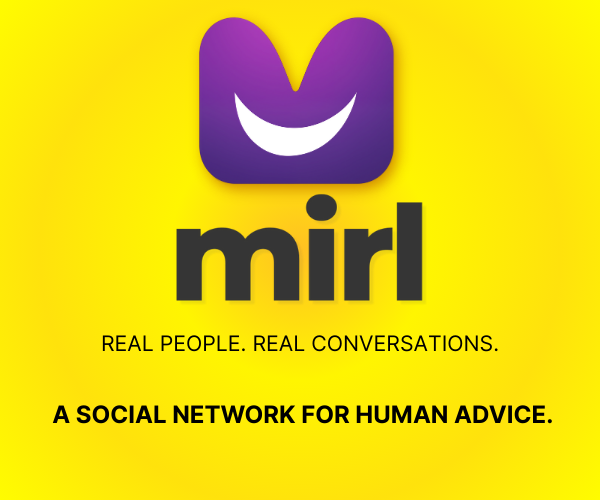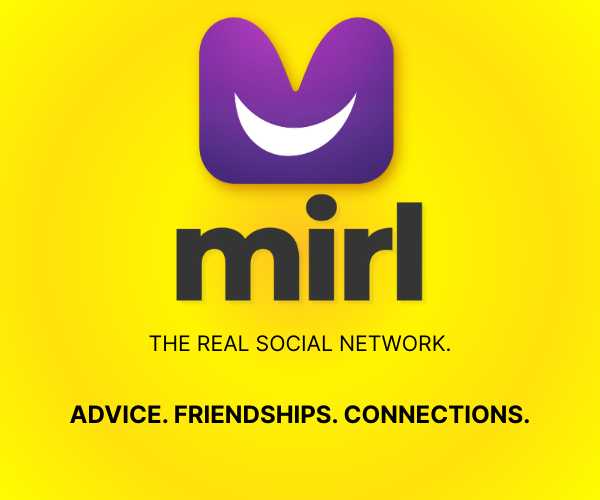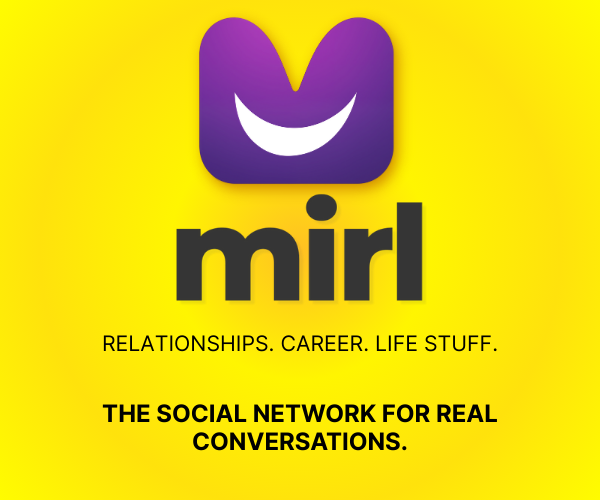38 Signs of Codependency & Traits that Make You Clingy and Ways to Break Out

Codependent relationships are extremely unhealthy. It’s important to spot the signs of codependency early and break the pattern of behavior.
Most of us don’t realize we’re in an unhealthy relationship until something significant happens that shakes us up. Maybe someone has told you they can see signs of codependency in your relationship or some unhealthy behavior happening between you and your partner. You can choose to believe them, or push the thought to the side.
However, if this discussion is happening with a close family member or friend, the chances are you should be listening. We don’t tend to see these traits within our relationships and ourselves until it’s too late. We don’t want to admit to ourselves that perhaps something isn’t quite right.
If you’ve been wondering about codependency in your relationship, you’ve come to the right place [Read: Do you have codependent traits that make you clingy?]
What does it mean to be codependent?
Being codependent means you’re emotionally reliant on someone else for your happiness and well-being. You focus on how they are and what they’re doing so much that you forget yourself. You might become needy, but you won’t see it that way.
In your eyes, you’re just being a committed partner who would do anything for the person they love.
The problem is that your own needs are second best. You’re suffering while they’re thriving. [Read: How to be less codependent & enjoy your life as it could be]
Why is codependency unhealthy?
This whole “can’t live without you” deal has been glamorized in songs, but there’s nothing particularly glamorous or cute about it at all. It’s actually seriously unhealthy. When you’re exhibiting codependent traits and becoming overly dependent upon your partner, you aren’t operating independently.
Of course, your partner may like this. They’re getting everything they want and they don’t really have to put much effort in. That’s why some partners tend to enable codependent traits because it works in their favor.
However, if both partners are codependent, the situation tends to worsen even more. [Read: Toxic people – 48 warning signs and the best ways to deal with them]
Relationships are complicated at times, but they’re meant to be. It’s two people coming together and trying to find middle ground. Of course, there are going to be road bumps.
But, when you’re codependent, you can’t stand the idea of conflict, even healthy conflict. So, you avoid it like the plague, and nothing is ever resolved fairly. You always say yes to your partner and you always end up lacking.
The worst thing? After a while, you don’t even notice that you’re not getting your needs met because they’re so far down your priority list. [Read: 15 signs of codependency to know if you’re being taken for granted]
How to recognize a codependent relationship
Codependent relationships aren’t always easy to spot right away. People who are “takers” will throw their partner’s small rewards here and there, making sure they come back for more. Those rewards are often enough to keep them where they are.
Of course, some people are more dominant in their relationships, and that doesn’t mean it’s codependent. But if you’re feeling like your relationship isn’t going down a healthy path, you may be in a codependent relationship
If you regularly feel like you’re giving, giving, giving, and never getting anything back, that’s a huge red flag. Relationships are about give and take. When you’re always giving and they’re always taking, everything is out of balance. [Read: How to spot selfish people and stop them from hurting you]
Alarming signs of codependency that start the pattern
Let’s cut the unhealthy pattern. Are you seeing any of these signs of codependency in your relationship? It may seem like the two of you are very close at first, and there’s nothing wrong with that.
But if you start to feel like you or your partner can’t function without each other’s presence, perhaps one of you is preventing the other from growing.
1. Your partner’s feelings always come first
It’s normal for you to consider your partner’s feelings and sometimes put your own needs to the side. But if you’re always putting your partner’s feelings first without consulting your own, this is one of the unhealthy signs of codependency.
If you’re not comfortable, you should be able to say “no.” [Read: When you truly love someone, should you do anything for them?]
2. Your partner manipulates you during fights
Sometimes we say things we shouldn’t say when we’re arguing. But, as a relationship evolves, boundaries are built, and people learn to communicate with one another. If your partner is manipulating you during arguments, then it’s a clear sign it’s not a healthy space. [Read: 15 signs of manipulation in a relationship you shouldn’t ignore]
3. Your partner’s happiness is your priority
Listen, you should put your partner’s feelings as a priority, but that doesn’t mean their feelings should go before yours.
This is tricky, and yes, sometimes you will need to make sacrifices, but only to a point. If you always put their feelings before yours, this can cause resentment and codependency.
4. You don’t have a sense of personal identity
One of the clearest signs of codependency is when you start losing your sense of identity. It’s perfectly normal for couples to do things together and have similar opinions, but you’re also your own person.
Your happiness should not rely on your relationship because you have other things in your life, such as friends, family, and hobbies. [Read: How to stop being codependent and have a healthy relationship]
5. You make excuses for your partner’s behavior
We all have our flaws, and sometimes we do or say things that aren’t right. But through those experiences, we learn life lessons. However, your partner doesn’t have to take responsibility for their actions because you always have an excuse for them.
6. You struggle to make decisions in your relationship
In healthy relationships, it’s normal for partners to make decisions on behalf of the relationship. You’re with your partner because you trust their discretion.
However, if you struggle to make decisions in your relationship, that’s one of the signs of codependency. If anything, most of the decision-making is done by your partner, taking away from the idea of “togetherness.”
7. You feel your partner’s pain
When our partners go through a tough time, we naturally empathize with them. You may feel you need to take on your partner’s emotional burden because you don’t want to see your partner in pain.
But when you’re codependent, you take their pain and make it your own. [Read: What does a healthy relationship look like? The steps you need to build one]
8. If you’re honest with yourself, you feel taken advantage of
You’re full of kindness and love, and your partner knows that. These qualities are what people want in their partners, but some people take advantage of them. If you’re not feeling appreciated and you feel used instead, then this is one of those signs of codependency. [Read: 16 reasons why you’re always being taken for granted]
9. You fear being abandoned
Though you may not feel good about your codependent relationship, you fear being abandoned by them. This is one of the reasons why you continue to be in the relationship. Even though you know it’s not healthy, you don’t want them to leave you.
10. You do the giving, your partner does the taking
In the relationship, you’re constantly giving to your partner, which isn’t necessarily bad. In a healthy relationship, you need to invest in your relationship. But this only works when both people are giving in the relationship.
If someone is codependent, they’re taking more from the relationship than they’re giving. [Read: 16 clear signs to know if you’re in a relationship with a user]
11. You struggle to communicate your needs
Though your partner is always able to communicate their needs to you and have them fulfilled, you’re not able to communicate your needs. And if you do, your needs are either ignored or put down.
12. You avoid fighting by suppressing your feelings
Since your partner doesn’t fight fair, you avoid any confrontations with them. But, in essence, all you’re doing is suppressing your feelings, which makes you feel worse about yourself and your relationship.
In a healthy relationship, you can freely speak your mind and have productive arguments. [Read: Relationship arguments – 25 do’s and don’ts to remember]
13. You feel trapped
In the beginning, your relationship and dependency on each other were endearing and seen as signs of love. But now, you’re starting to feel trapped.
You aren’t able to speak your mind, your needs aren’t being met, and you prioritize your partner over yourself. You no longer feel equal in your relationship. [Read: Controlling vs caring – a thin line controlling people love to cross]
14. Your partner exhibits controlling behavior
When you are arguing, they use the relationship against you. For you to be together, they’ll suggest you stop seeing friends or family. Or, they’ll use the relationship as a way to continue negative behavior, such as drug abuse or drinking.
15. Your partner’s opinion is number one
It’s normal that we consider our partner’s opinion when making a decision. We trust and respect them. But, you don’t do anything without the consent of your partner.
If they don’t like something that you do, you’ll give it up to make them happy. Your own opinion becomes a mirror of theirs. Basically, you start to lose your own thoughts and they merge into the ones that your partner finds acceptable. [Read: How to express your feelings and get your point across the right way]
16. You make extreme sacrifices for your partner
The things you do aren’t to help build the relationship, rather, the sacrifices you make are extreme and only serve to make your partner happy. What happened to a relationship being a two-way street?
If you’re constantly making your partner happy, they’re not really going to turn around and tell you to stop or that you need to have your own needs met too. They’re going to get pretty comfortable and that’s how your relationship will end up being over the long term. [Read: 16 reasons why you’re always being taken for granted]
17. You struggle to say “no”
Even when you don’t want to do something, instead of talking it out and coming to a compromise, you immediately give in to your partner’s needs. You’re not considering your energy, time, and feelings.
You place your feelings and interest on the back burner because making your partner happy is more important to you. This is one of the major signs of codependency. [Read: Your guide for how to say no and feel awesome instead]
18. Some people with codependent traits resort to substance abuse
You think you’re happy in your relationship, but deep down, you’re not. To suppress those negative feelings, you engage in problematic behavior such as drugs and alcohol abuse.
Why? Because you don’t want to face the consequence of losing your partner. While not every single person with codependent traits does this, it’s certainly a route that many choose to take. [Read: How to stop self-destructive behavior and make your life better]
19. Not only does their happiness come first, but you feel responsible for it
When your partner is upset, you take that on yourself, even though you shouldn’t. You place your partner’s happiness on your shoulders, doing whatever you can to make them happy.
News alert: they’re the only ones responsible for their own happiness.
If something goes wrong, you’re not duty-bound to fix it for them. They’re an adult and they can work out their problems. If they want your help, they’ll ask you for it.
20. You’re very loyal – to an extreme
Loyalty is a desirable trait in most relationships, however, you take it to the extreme. Even when you’re aware the relationship is unhealthy, and you’re not being treated with respect, you stay by your partner’s side.
This is a serious sign of codependency because you’ll generally put up with emotional abuse and other negative behavior without questioning it. [Read: 21 big signs of emotional abuse you may be overlooking]
21. Your partner doesn’t consider your needs
While you’re busy doing everything for your partner to make them happy, they rarely pay attention to your needs and desires.
And why would they? They’re being served with a silver spoon. However, this shows that they’re taking advantage of you and perhaps your loyalty to them is misguided. [Read: 15 signs of a toxic relationship that’ll go from bad to worse]
22. You give up your truth
You have your beliefs, values, and opinions in the world and they don’t necessarily align with your partner’s. And honestly, that’s fine. You and your partner shouldn’t be twins.
However, instead of standing by your beliefs, you give up your truth for your partner to either gain approval or to avoid negative consequences. This is one of the damaging signs of codependency.
23. You use sex for attention
We’re pretty sure most people have done this in their lifetime. We often confuse love with sexual attention. Though deep down, what we want is to be loved. Instead, we use sex as a way to gain affection and intimacy. [Read: Curious minds want answers – how many sexual partners is too many?]
24. You feel like a victim
When you’re a codependent person, you usually feel victimized and powerless as you don’t understand your role in the reality you’ve created. Deep down, you know that it shouldn’t be this way but you’ve created a cycle that seems impossible to break.
25. You can’t really pinpoint how you truly feel
A person with strong codependent traits may, over time, have true difficulty in actually working out what they’re feeling at any given moment.
They’ve become so used to pushing their feelings down that they can’t recognize their own emotions. [Read: How to talk about your feelings in a relationship and grow closer]
26. You think that you’re dedicated and the perfect partner
Many codependent people tend to think what they’re doing is actually positive. They think that by dedicating themselves to their partner in this way, they’re the perfect partner who would do anything to see them smile.
They don’t realize how damaging and unhealthy it can be to dedicate their entire life to someone and push away their own needs. [Read: 20 worrying signs you’re being taken advantage of in a relationship]
27. You react negatively to criticism of your partner
If someone tells you that they don’t like how your partner treats you or that they’ve seen them with someone else, you push them away.
You don’t believe anything negative about your partner, but that’s simply because you don’t want to. You refuse to see the truth because that would mean raising the possibility of conflict. You’re so dedicated to your partner that you simply won’t hear a word against them.
28. You probably have low self-esteem
It’s not really possible to show strong codependent traits on a regular basis and have high self-esteem. This is the work of someone who doesn’t value or believe in themselves very much.
Why? Because you’ve placed your partner so far in front of yourself that you don’t think your needs matter anymore. Oh, but they do! [Read: Dating someone with low self-esteem – what it’s like for both of you]
A dependent partner will assume that they cannot function in public without their lover. They feel safer, more confident, and more at ease only when they have their partner in tow.
That means you may end up turning down invitations to go out with your friends. Over time, that’s unhealthy because friendships are important too!
30. You quickly become paranoid if you can’t reach your partner
As a codependent partner, your worst fear is losing your enabler. You might concoct various scenarios like infidelity, abandonment, or even death as the reason you can’t help reach them. The likelihood is simply that they’re busy. [Read: Trust issues in a relationship – 22 why’s and ways to get over it together]
31. If your partner says “jump,” you say “how high?”
Because you don’t want to disappoint or upset your partner, you tend to go along with everything they suggest. If they tell you to do something, most of the time you’ll do it.
However, it’s important to realize that this can be a manipulation tactic and not all partners have the best intentions in mind.
32. You always try to save the day
Whether it’s a burglar or an unopened pickle jar, one of the signs of codependency is that you will always try to save the day. If you fail to do this, you consider yourself a failure and beat yourself up about it.
Remember that your partner is completely able to do things on their own and doesn’t always need to be saved! [Read: How to stop overthinking]
How to break out of the cycle of codependency
Breaking free from codependency isn’t easy and it will take time. But, with effort and commitment, you can sidestep your codependent traits and find a healthy and loving relationship.
1. Acknowledge you have codependent traits
The first step to overcoming any issue is to acknowledge it in the first place. Acknowledge that you have codependent traits and that you are allowing them to alter your relationship.
Take a long, hard look at your behaviors and thought patterns and see how they are affecting both you and your partner. [Read: How to spot codependent behavior early and regain your self-identity]
2. Identify where you’re most codependent
Not every single person with codependent traits exhibits all of them. So, start trying to look for patterns and work out where in your relationship *and life generally* you show the most codependency and allow others to control your life.
It might be a good idea to keep a journal and you’ll be able to identify trends more easily.
3. Know what you’re aiming toward
Do you know what a healthy relationship looks like?
While we should never compare our relationships with anyone else’s, it’s important to find healthy relationships to look up to. That way, you can see for yourself how your behavior is impacting your union. You can also understand for sure what healthy love looks like. [Read: 15 signs and qualities of a healthy relationship that keep couples happy]
4. Identify some boundaries and stick to them
The best way to learn how to overcome codependent traits is to start setting boundaries. These should be in line with the areas where you most show your codependency.
So, if you struggle to say “no”’ it’s time to slowly start doing that whenever you feel like you don’t want to do something.
If you tend to try and solve your partner’s problems because you feel responsible for their happiness, offer advice and show them empathy, but then simply say “I’m here if you need me” and then walk away from the situation.
Stick to your boundaries and know that it will seem strange and even quite hard at first. Over time, it will get easier. [Read: How to set boundaries in a relationship – 15 rules for healthy love]
5. Practice self-love to break free of codependent traits
We’ve already mentioned that one of the most common codependent traits is low self-esteem. So, start practicing self-love.
Do things for yourself and don’t allow yourself to feel guilty about it. Whatever you enjoy doing, do more of it. Keep a gratitude diary and try to build your confidence in life that way. It will take time, but becoming more self-confident is never a waste of effort. [Read: How to love yourself – the 23 best ways to find love and happiness]
6. Seek support
It may be that you need extra help to overcome your codependency and if that’s the case, there is plenty of help out there.
You could talk to your partner and seek support there. Perhaps they’ve been totally unaware of what’s going on and they want to help you make things better. Or, if that’s not the case, reach out to a friend or family member.
It might also be that you need the help of an unconnected person and in that case, therapy is a good option. [Read: How to spot manipulative people and stop playing the victim]
Codependency can be overcome
If you notice these signs of codependency, it’s time to stop, take a step back, and examine why you’re doing this. Is there a deeper issue you need to deal with, or is it simply because you have been confused about what love really is?
For sure, we do things for our partners, but we don’t have to do everything. Your needs matter too. It’s time to do some self-improvement work and figure out what is making you act this way and how you can improve things.
You need to build up your confidence and realize that your own needs, wants, and desires matter just as much as your partner’s. [Read: How to improve yourself – 16 powerful secrets of self-improvement]
Talk to your partner. Maybe they don’t realize what is happening and they want to help you right the issue too. At the end of the day, if they’re not willing to help you, you have to question why – perhaps they like doing all the taking while you just give everything you have.
[Read: What is a toxic relationship? 53 signs to recognize love that hurts you]
As you have learned, codependency isn’t necessarily bad. But when it goes to extremes, you can lose yourself in a relationship. If you see these signs in your relationship, it’s time to make a change.



















